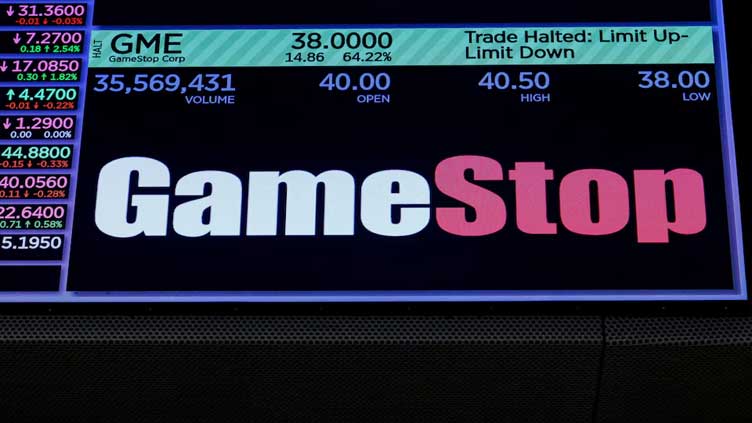'Roaring Kitty' is sued for alleged GameStop manipulation

Technology
'Roaring Kitty' is sued for alleged GameStop manipulation
NEW YORK (Reuters) - Keith Gill, the investor known as "Roaring Kitty" who helped spur the meme stock mania of 2021, was sued by GameStop investors who said they lost money through his "pump-and-dump" scheme for the videogame retailer.
A proposed class action accusing Gill of securities fraud was filed on Friday in the Brooklyn, New York federal court.
Investors led by Martin Radev, who lives in the Las Vegas area, said Gill manipulated GameStop securities between May 13 and June 13 by quietly accumulating large quantities of stock and call options and then dumping some holdings after emerging from a three-year social media hiatus.
They said Gill's activities caused GameStop's share price to gyrate wildly, generating "millions of dollars" in profit for him at their expense.
"Defendant still enjoys celebrity status and commands a following of millions through his social media accounts," the complaint said.
"Accordingly, Defendant was well aware of his ability to manipulate the market for GameStop securities, as well as the benefits he could reap."
Gill did not immediately respond to requests for comment on Monday.
He had on May 12 posted a cryptic meme on the social media platform X that was widely seen as a bullish signal for GameStop, whose stock he cheerleaded in 2021.
GameStop's share price more than tripled over the next two days but gave back nearly all the gains by May 24.
On June 2, Gill revealed that he owned 5 million GameStop shares and 120,000 call options, and on June 13 he had shed the call options but owned 9 million GameStop shares.
Investors said the truth about Gill's investing became known on June 3 when the Wall Street Journal wrote about the timing of his options trades and said the online brokerage E*Trade considered kicking him off its platform.
The meme stock mania was fueled in part by investors stuck at home during the pandemic, and led to a "short squeeze" that caused losses for hedge funds betting stock prices would fall.
On Monday, trading in Chewy shares became volatile after Gill revealed a 6.6% stake in the pet products retailer.


